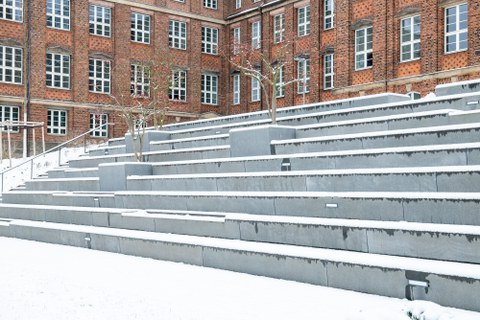Feb 14, 2025
Statement of the network anti-discrimination at universities
The nationwide network Antidiscrimination at Universities has been advocating for professional and sustainable anti-discrimination work in the higher education landscape since 2018. As an open association of stakeholders from around 100 universities and higher education institutions, it promotes exchange, strengthens the professionalization of anti-discrimination work and positions anti-discrimination as a strategic issue in university development.
The aim is to counteract discrimination at all levels and actively shape discrimination-sensitive university development.
The following statement was published with a view to the Bundestag elections. It was co-signed by the Federal Conference of Women's and Equal Opportunities Officers at Universities (bukof) and the Network Diversity at Universities.
On February 23, 2025, early elections to the Bundestag will take place in Germany.
This is taking place in a political climate in which racist and sexist discourses on migration, cultural and religious affiliations and gender identity are increasingly being instrumentalized to gain populist votes. This social climate influences both university policy and the situation for students and employees at universities.
Current social developments show that positions that oppose gender diversity, criticism of racism, gender studies and anti-discrimination work are increasingly being heard and gaining influence. Such a backlash would not only jeopardize existing structures, but also call into question basic democratic values such as diversity and human rights - which characterize our university system. The growing normalization of discriminatory and anti-democratic rhetoric carries the risk of undermining social progress and the diverse approaches and achievements of anti-discrimination and diversity work at universities - from promoting equitable access to education to combating structural disadvantages.
disadvantages - are undermined.
Reports from our network show that the situation in the field of
anti-discrimination and diversity work has already deteriorated. In some federal states, funding has been cut, projects and posts have not been extended and discriminatory structures and acts have been negated. At the same time, right-wing extremist, racist, anti-Semitic and queer-hostile attacks and intimidation attempts at universities are on the rise - fueled by the political and social climate - while urgently needed anti-discrimination work
is being cut. This development is a cause for great concern.
In view of the increasing dangers posed by right-wing extremist, anti-democratic and
anti-democratic and anti-human rights movements, we as a network call on you to actively
actively defend democratic values! The upcoming elections offer the opportunity to send a clear
for diversity, human rights and a just society. Voting
is an indispensable contribution to strengthening our democracy and the fundamental values on which our universities are built.
Universities have a statutory mandate to guarantee the fundamental right to education for all people, regardless of gender, disability, religion or origin, for example.
or origin. In order to fulfill this mandate, anti-discrimination structures at universities must be sustainably secured and expanded. In recent years, committed colleagues at many universities have developed advice and complaints centers, guidelines and protection concepts under sometimes precarious conditions, which not only offer support to those affected, but also take a clear stance.
support, but also take a clear stance against discrimination. These achievements must be defended and further developed in order to strengthen the democratic culture at universities and meet future challenges.
In addition to a clear commitment to basic democratic values and diversity, there is also a need for adequate funding for the respective positions in the area of
anti-discrimination work, regardless of political majorities at federal and state level.
Anti-discrimination work must be intersectional and strengthen equal opportunities for socially marginalized individuals or groups. Solidarity between universities, research institutions, scientists and civil society stakeholders must be strengthened.
Academic and artistic freedom must be protected from ideological influence and safeguarded as a central democratic principle. Academic institutions have a responsibility to actively represent human rights-oriented positions and democratic values.
We demand a clear commitment from universities to continue, further develop and consolidate the anti-discrimination work they have begun and to safeguard basic democratic values - regardless of the outcome.
democratic values - regardless of the outcome of the Bundestag elections.

